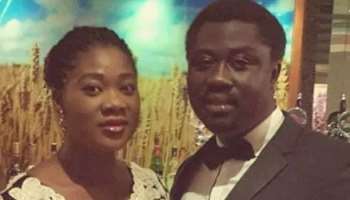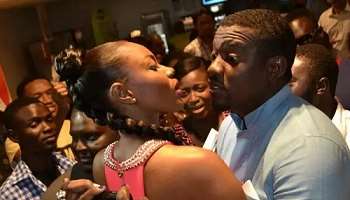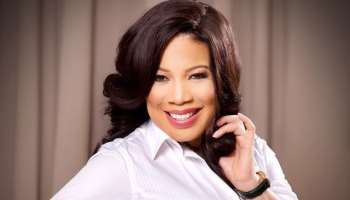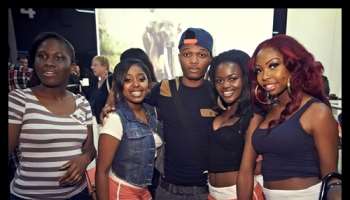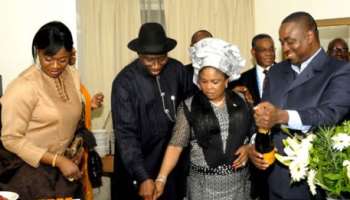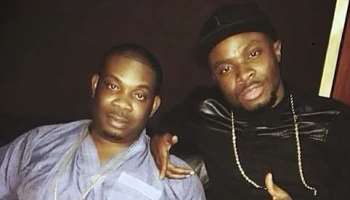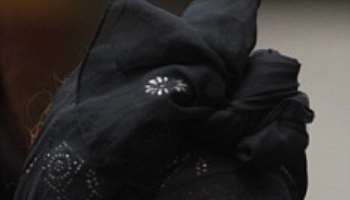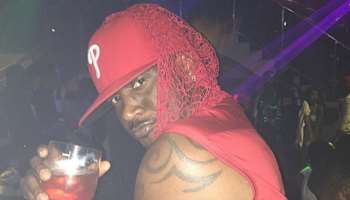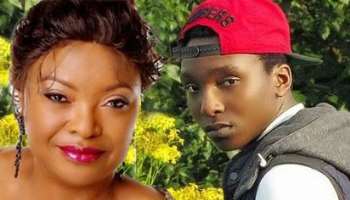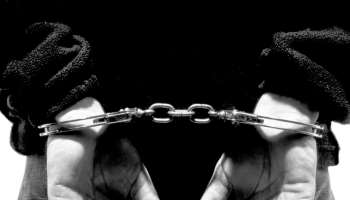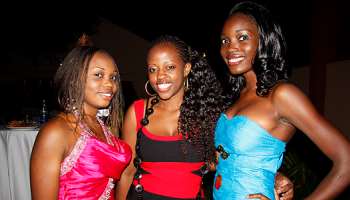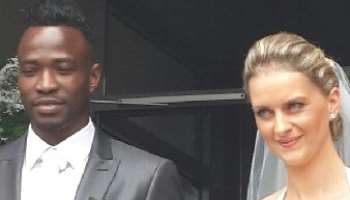Daughter’s Scary Attack On John Fashanu Over Justin’s Gay Claim “You Caused Your Brother’s Death
Trawling through film archives for a BBC documentary she was making about gay footballers, Amal Fashanu, John Fashanu's daughter discovered the 'dark secret' that overshadowed her family for more than two decades.
She learned that her uncle, Justin Fashanu – Britain's first £1 million black player and the only professional footballer to 'come out' as homosexual – was devastated by the rejection of his own family.
Amal, 23-year-old daughter of Justin's brother, the former Wimbledon player-turned-TV presenter John Fashanu, has always believed football failed her uncle and that homophobia contributed to the fragile mental state that led him to take his life. But she now also believes he was pushed over the edge by rejection by the people he loved the most. In the programme, Britain's Gay Footballers, Amal tries to discover why no other player has 'come out' like Justin. She discovered the full extent of her uncle's vilification after he revealed his sexuality in 1990 at 29. His once stellar career was dogged by sex scandals and he hanged himself eight years later, after being accused of sexually assaulting a 17-year-old boy in America. But it was Justin's schism with John that appears to have left the deepest cut. John condemned him in a TV interview when Justin came out, saying he would have to 'suffer the consequences' for going public and adding he would 'not want to play or even get changed' with him.
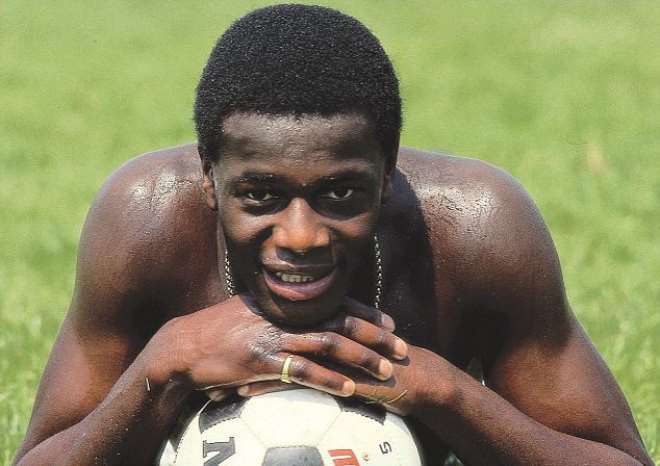
Justin Fashanu
Desperate for money, his career waning, Justin sold stories to the tabloids – later proved false – about sexual liaisons with politicians and celebrities.
At the time the details were kept from Amal. 'It was very upsetting to see the old news reports of my father disowning his own brother,' she says. 'I was only 10 when it happened and my parents wanted to protect me. After my parents split up, I grew up with my mother in Madrid and although I heard things, I never discussed it with my father. I knew he had not approved of Justin's lifestyle, but the extent of his disloyalty was a shock. 'Other members of the family have been reticent. It hurts me to think everyone abandoned him. I can't help but think it would have taken just one supportive person to stand up for him.'
Amal graduated from Brunel University last year and is set on a modelling or TV career. When she confronted her father for her documentary, the former Gladiators host, now a businessman in Nigeria, insisted he had never been homophobic, but had been protecting the family name. He told her: 'At the time, I was cross with my brother. It was the way it came out – cheap and dirty, horrible scandals day after day. Going on the front pages of the newspapers, saying you'd had sexual relationships with MPs. Justin was selfish. I did what I thought was right for our family and for myself.' The brothers – former Barnardo's Homes boys who were fostered in Norfolk – had once forged a bond in childhood adversity. Both started in professional football with Norwich City in 1978. Justin was signed for £1 million in 1981 by Nottingham Forest, where manager Brian Clough bluffly challenged Justin's taste for 'poof clubs', ultimately driving him from the team.
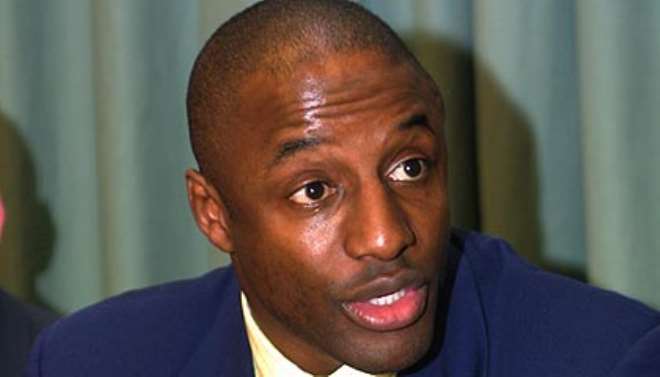
John Fashanu
After playing for a string of clubs, injury and homophobia eventually forced Justin into coaching work in Canada, New Zealand and America, where, in 1998, he was accused of the sex assault. Returning to Britain, he hanged himself two days later in a back-street garage in London's East End. It was then revealed that the assault accusation was unfounded and no arrest warrant existed.
On the morning that news of his suicide broke, an interview was published giving John's reaction to the assault claims. John had said: 'I just pray the accusations are not true, but we lost contact years ago and, anyway, I'm past caring.' Justin's suicide note protested his innocence but added that he did not want to heap further embarrassment on his family. He said he had felt abandoned by those he cared about. 'What I've learned about him since doing this documentary is that he really wanted to be true to himself,' says Amal. 'But society would not accept a gay top-flight sportsman. 'In the 14 years since his death, no one has been brave enough to follow in his footsteps.
There are about 5,000 professional footballers in the country, yet incredibly not a single one of them has come out as gay. I'm proud Justin was my uncle and that he was brave enough to say what he did. I think my dad now regrets the harsh way he responded.
'The game needs more people like my uncle if homophobic barriers are to be removed.'
Culled from Daily Mail UK
Latest News
-
 "If You're For Me, I Am For You" - Cubana Chief P
"If You're For Me, I Am For You" - Cubana Chief P -
 "3 Days To Go" - Femi Adebayo Urges Fans To Get S
"3 Days To Go" - Femi Adebayo Urges Fans To Get S -
 "Stop Asking Me Questions About Speed Darlington"
"Stop Asking Me Questions About Speed Darlington" -
 "Benue Is The Most Underdeveloped State I've Ever
"Benue Is The Most Underdeveloped State I've Ever -
 Stan Alieke Urges Young Professionals To Take Lin
Stan Alieke Urges Young Professionals To Take Lin -
 Chizzy Alichi Teases Fans With Baby Reveal, Promot
Chizzy Alichi Teases Fans With Baby Reveal, Promot -
 "I'm Not Wearing Makeup From July 4th Till Decemb
"I'm Not Wearing Makeup From July 4th Till Decemb -
 "Stop The Challenge Of Mocking Kids With Down Syn
"Stop The Challenge Of Mocking Kids With Down Syn -
 Regina Daniels Celebrates Sons As They Mark Birthd
Regina Daniels Celebrates Sons As They Mark Birthd -
 Speed Darlington Threatens To Sue NAPTIP For Defam
Speed Darlington Threatens To Sue NAPTIP For Defam



